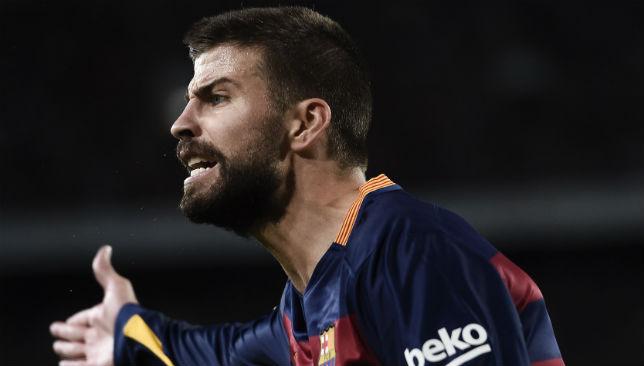
Although this won’t be much of a consolation to Gerard Pique at the moment, politically-motivated divisions within the Spanish football squad and among supporters of La Roja are nothing new.
Cazorla on Spain fans booing Piqué: “We don’t understand, to be honest. He’s huge for us. He loves his country.” pic.twitter.com/KpDgE0ElQW
Age-old antipathies between Basques, Catalans and the rest of the country’s inhabitants regularly rear their ugly heads in Spain’s football arenas, providing a prime case to dispel the myth that sport and politics should not mix.
In Spain, sport is politics and politics is sport, and the sustained jeering of Pique during his last two ‘home’ international appearances is the latest manifestation of a complex cultural conundrum.
In small part, the hostility towards Pique can be framed as a simple case of Real Madrid versus Barcelona. As the most candid pro-Barca and anti-Madrid spokesman within his club’s ranks, Pique has set himself up to be detested figure by Real fans – who can be found not just in the capital but also in heavy numbers practically everywhere in the country.
But, in reality, Pique’s greater ‘crime’ in the eyes of the fans who have recently taken to angrily whistling him is his vocal public support for an entirely non-sporting issue: Catalan independence.
Since the onset of the Europe-wide economic crisis, there have been growing demands from Catalans – the north-eastern corner of Spain which has Barcelona as its capital – for their region to break away from Spain and form a new, independent state of Catalonia.
– Euro 2016: Turkey sink woeful Netherlands
– Euro16: Record-making Rooney sends England through
– Also: Neymar reduced to substitute appearance in 1-0 win
Catalans argue that they have a separate language, politics, traditions, history and identity, and a parliamentary process – vociferously opposed by the central government in Madrid – has been underway for the last couple of years in an attempt to force a referendum on the matter.
As befits their ‘Mes que un club’ motto and their historical importance to Catalan identity, it’s no surprise FC Barcelona have been thrust to the centre of the debate.
Barca fans, for example, chant boisterously for independence after 17 minutes and 14 seconds of every half during every game at the Nou Camp, referencing the year, 1714, that Catalonia was forcibly integrated into Spain.
In a country where sport plays such an important part of everyday life – and where General Franco’s fascist regime gained much of its international prestige by firmly affixing itself to the achievements of Madrid – football is unavoidably intertwined with politics, and this close relationship can be easily witnessed on an everyday level.
Watching a Spain international game in the second biggest city in the country, Barcelona, for instance, is initially a bewildering experience for the uninitiated.
The vast majority of locals – who most firmly regard themselves as Catalan and certainly not as Spanish – simply couldn’t care less about the fortunes of a national team which they believe does not represent them, even though the squad contains a backbone of Catalan-born Barcelona players.
In that context, the large-scale barracking of a player like Pique who has publicly vowed to support Catalan independence (as, intriguingly, has Pep Guardiola) is only inevitable elsewhere in the country.
The pleas by coach Vicente Del Bosque for fans to stop the jeering and regard Pique only as a Spain player rather than a pro-independence Catalan, therefore, may be heeded for a while. But the issue will never go away for very long.